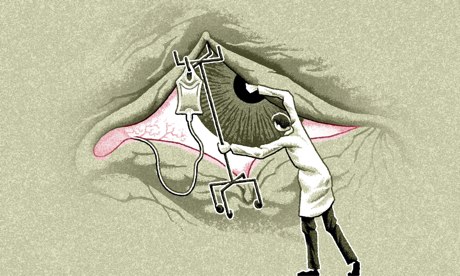From The Economist
In an episode of “The Sopranos”, a popular television series which started airing in the 1990s, a gangster tells Tony, from the titular family, that he wants to retire. “What are you, a hockey player?” Tony snaps back. Non-fictional non-criminals who are considering an end to their working lives need not worry about broken fingers or other bodily harm. But they must still contend with other potentially painful losses: of income, purpose or, most poignantly, relevance.
Some simply won’t quit. Giorgio Armani refuses to relinquish his role as chief executive of his fashion house at the age of 89. Being Italy’s second-richest man has not dampened his work ethic. Charlie Munger, Warren Buffett’s sidekick at Berkshire Hathaway, worked for the investment powerhouse until he died late last year at the age of 99. Mr Buffett himself is going strong at 93.
People like Messrs Armani, Buffett or Munger are exceptional. But in remaining professionally active into what would historically be considered dotage, they are not unique. One poll this year found that almost one in three Americans say they may never retire. The majority of the nevers said they could not afford to give up a full-time job, especially when inflation was eating into an already measly Social Security cheque. But suppose you are one of the lucky ones who can choose to step aside. Should you do it?
The arc of corporate life used to be predictable. You made your way up the career ladder, acquiring more prestige and bigger salaries at every step. Then, in your early 60s, there was a Friday-afternoon retirement party, maybe a gold watch, and that was that. The next day the world of meetings, objectives, tasks and other busyness faded. If you were moderately restless, you could play bridge or help out with the grandchildren. If you weren’t, there were crossword puzzles, tv and a blanket.
Although intellectual stimulation tends to keep depression and cognitive impairment at bay, many professionals in the technology sector retire at the earliest recommended date to make space for the younger generation, conceding it would be unrealistic to maintain their edge in the field. Still, to step down means to leave centre stage—leisure gives you all the time in the world but tends to marginalise you as you are no longer in the game.
Things have changed. Lifespans are getting longer. It is true that although the post-retirement, twilight years are stretching, they do not have to lead to boredom or to a life devoid of meaning. Once you retire after 32 years as a lawyer at the World Bank, you can begin to split your time between photography and scrounging flea markets for a collection of Americana. You don’t have to miss your job or suffer from a lack of purpose. If you are no longer head of the hospital, you can join Médecins Sans Frontières for occasional stints, teach or help out at your local clinic. Self-worth and personal growth can derive from many places, including non-profit work or mentoring others on how to set up a business.
But can anything truly replace the framework and buzz of being part of the action? You can have a packed diary devoid of deadlines, meetings and spreadsheets and flourish as a consumer of theatre matinees, art exhibitions and badminton lessons. Hobbies are all well and good for many. But for the extremely driven, they can feel pointless and even slightly embarrassing.
That is because there is depth in being useful. And excitement, even in significantly lower doses than are typical earlier in a career, can act as an anti-ageing serum. Whenever Mr Armani is told to retire and enjoy the fruits of his labour, he replies “absolutely not”. Instead he is clearly energised by being involved in the running of the business day to day, signing off on every design, document and figure.
In “Seinfeld”, another television show of the 1990s, Jerry goes to visit his parents, middle-class Americans who moved to Florida when they retired, having dinner in the afternoon. “I’m not force-feeding myself a steak at 4.30 just to save a couple of bucks!” Jerry protests. When this guest Bartleby entered the job market, she assumed that when the day came she too would be a pensioner in a pastel-coloured shirt opting for the “early-bird special”. A quarter of a century on, your 48-year-old columnist hopes to be writing for The Economist decades from now, even if she trundles to her interviews supported by a Zimmer frame; Mr Seinfeld is still going strong at 69, after all. But ask her again in 21 years.
'People will forgive you for being wrong, but they will never forgive you for being right - especially if events prove you right while proving them wrong.' Thomas Sowell
Search This Blog
Wednesday, 31 January 2024
Why You Should Never Retire
Thursday, 22 December 2022
Other democracies should beware taking pleasure in the UK’s travails
Voters in most developed countries feel that their contract with the state is fraying writes Bronwen Maddox in the FT
I can barely think of a meeting I’ve had since September that didn’t begin with jokes about Britain’s newfound instability. I started a job a few days before Liz Truss became prime minister, and the “lasted longer than the lettuce” one has been inescapable. “Three prime ministers in a year!” (Ambassadors from European countries still incredulous at Brexit particularly like this one.) Now, there are the strikes — although the meltdown of the NHS’s emergency services is no joke at all.
But these are rash quips if coming from other democracies. The joke may be on them, too. Older democratic countries share many of the same problems and are struggling to show that they have a system that can solve them. “If you don’t have a political system that can make short-term sacrifices for the long-term good of the country, how can you expect your system of government to survive?” asked one senior Chinese official of a distinguished British former minister.
It’s a good question. In Britain, the NHS is a symbol of these problems above all others. The stand-off with the government by nurses and ambulance workers is of course about worker pay, but is also about how much the government wants to pay for the health service at all.
Much of the problem stems from the demands of an ageing population, and that is something that many older democracies share. Even if other countries may no longer envy the NHS, they share some of the same troubles. On many fronts, the contract that voters thought they had with their governments — over them paying for healthcare, education, pensions — is being rewritten, and not in their favour. Perhaps the best-known saying of Jean Claude Juncker, when prime minister of Luxembourg, was: “We know what to do, we just don’t know how to get re-elected once we have done it.”
Those sceptical of democracy have prophesied that this is how it consumes itself. It is easier to make promises than to keep them, so the temptation is for politicians to make extravagant commitments to get into office, and then try somehow to stay there. Following this recipe, democracy decays into populism and then autocracy.
To some degree, yes. Boris Johnson and the unfulfillable Brexit promises were a symptom of the need to assemble an expansive coalition, built on impossibilities. The antidote — the “grown-up conversation with the nation” that politicians sometimes desperately invoke — seems pitifully weak.
All the same, that is what is needed. The pandemic does offer some encouragement, showing that people are prepared to give up an extraordinary amount if persuaded it is necessary. But there are also more practical things that governments could do to help.
First, they need to make the case for growth and the steps required to bring it about. Truss was not wrong in her ambition, just in recklessly ignoring the constraints on any country seeking to borrow money. For Britain, that means closer relations with Europe. A US trade deal is not coming any time soon; the only alternative of a large market is China, and Rishi Sunak’s government has chosen not to lean that way. It also means telling people that more legal immigration is needed. It means championing the creativity in science and culture that are themselves the product of the intellectual freedom at the heart of democracies.
The second thing to do is change voting systems and improve legislatures. In the UK, the House of Lords is indefensible, as former prime minister Gordon Brown has pointed out. He is right that regions need more representation, too. And first past the post is increasingly hard to defend in a country of many different kinds of people and views.
Third, is to stand up for the values that underpin liberal democracy but not try to couple them with all the other deals on the world stage. Insisting on a human rights agenda in every diplomatic relationship can jeopardise the pursuit of environmental and security accords that are desperately needed on their own account. It can lead to accusations of double standards — as shown by the controversy over Qatar’s hosting of the World Cup despite its treatment of LGBTQ people.
It is right, though, to pursue those liberal principles, while acknowledging that not all countries share them. They are, along with economic prospects, one of the reasons people risk their lives in small boats trying to come to the UK — one of the best arguments that liberal democracy has a future.
Monday, 7 March 2022
Monday, 3 January 2022
Can you think yourself young?
For more than a decade, Paddy Jones has been wowing audiences across the world with her salsa dancing. She came to fame on the Spanish talent show Tú Sí Que Vales (You’re Worth It) in 2009 and has since found success in the UK, through Britain’s Got Talent; in Germany, on Das Supertalent; in Argentina, on the dancing show Bailando; and in Italy, where she performed at the Sanremo music festival in 2018 alongside the band Lo Stato Sociale.
Jones also happens to be in her mid-80s, making her the world’s oldest acrobatic salsa dancer, according to Guinness World Records. Growing up in the UK, Jones had been a keen dancer and had performed professionally before she married her husband, David, at 22 and had four children. It was only in retirement that she began dancing again – to widespread acclaim. “I don’t plead my age because I don’t feel 80 or act it,” Jones told an interviewer in 2014.
According to a wealth of research that now spans five decades, we would all do well to embrace the same attitude – since it can act as a potent elixir of life. People who see the ageing process as a potential for personal growth tend to enjoy much better health into their 70s, 80s and 90s than people who associate ageing with helplessness and decline, differences that are reflected in their cells’ biological ageing and their overall life span.
 Salsa dancer Paddy Jones, centre. Photograph: Alberto Terenghi/IPA/Shutterstock
Salsa dancer Paddy Jones, centre. Photograph: Alberto Terenghi/IPA/ShutterstockOf all the claims I have investigated for my new book on the mind-body connection, the idea that our thoughts could shape our ageing and longevity was by far the most surprising. The science, however, turns out to be incredibly robust. “There’s just such a solid base of literature now,” says Prof Allyson Brothers at Colorado State University. “There are different labs in different countries using different measurements and different statistical approaches and yet the answer is always the same.”
If I could turn back time
The first hints that our thoughts and expectations could either accelerate or decelerate the ageing process came from a remarkable experiment by the psychologist Ellen Langer at Harvard University.
In 1979, she asked a group of 70- and 80-year-olds to complete various cognitive and physical tests, before taking them to a week-long retreat at a nearby monastery that had been redecorated in the style of the late 1950s. Everything at the location, from the magazines in the living room to the music playing on the radio and the films available to watch, was carefully chosen for historical accuracy.If you believe that you are frail and helpless, small difficulties will start to feel more threatening
The researchers asked the participants to live as if it were 1959. They had to write a biography of themselves for that era in the present tense and they were told to act as independently as possible. (They were discouraged from asking for help to carry their belongings to their room, for example.) The researchers also organised twice-daily discussions in which the participants had to talk about the political and sporting events of 1959 as if they were currently in progress – without talking about events since that point. The aim was to evoke their younger selves through all these associations.
To create a comparison, the researchers ran a second retreat a week later with a new set of participants. While factors such as the decor, diet and social contact remained the same, these participants were asked to reminisce about the past, without overtly acting as if they were reliving that period.
Most of the participants showed some improvements from the baseline tests to the after-retreat ones, but it was those in the first group, who had more fully immersed themselves in the world of 1959, who saw the greatest benefits. Sixty-three per cent made a significant gain on the cognitive tests, for example, compared to just 44% in the control condition. Their vision became sharper, their joints more flexible and their hands more dextrous, as some of the inflammation from their arthritis receded. As enticing as these findings might seem, Langer’s was based on a very small sample size. Extraordinary claims need extraordinary evidence and the idea that our mindset could somehow influence our physical ageing is about as extraordinary as scientific theories come.
Becca Levy, at the Yale School of Public Health, has been leading the way to provide that proof. In one of her earliest – and most eye-catching – papers, she examined data from the Ohio Longitudinal Study of Aging and Retirement that examined more than 1,000 participants since 1975.
The participants’ average age at the start of the survey was 63 years old and soon after joining they were asked to give their views on ageing. For example, they were asked to rate their agreement with the statement: “As you get older, you are less useful”. Quite astonishingly, Levy found the average person with a more positive attitude lived on for 22.6 years after the study commenced, while the average person with poorer interpretations of ageing survived for just 15 years. That link remained even after Levy had controlled for their actual health status at the start of the survey, as well as other known risk factors, such as socioeconomic status or feelings of loneliness, which could influence longevity.
The implications of the finding are as remarkable today as they were in 2002, when the study was first published. “If a previously unidentified virus was found to diminish life expectancy by over seven years, considerable effort would probably be devoted to identifying the cause and implementing a remedy,” Levy and her colleagues wrote. “In the present case, one of the likely causes is known: societally sanctioned denigration of the aged.”
Later studies have since reinforced the link between people’s expectations and their physical ageing, while dismissing some of the more obvious – and less interesting – explanations. You might expect that people’s attitudes would reflect their decline rather than contribute to the degeneration, for example. Yet many people will endorse certain ageist beliefs, such as the idea that “old people are helpless”, long before they should have started experiencing age-related disability themselves. And Levy has found that those kinds of views, expressed in people’s mid-30s, can predict their subsequent risk of cardiovascular disease up to 38 years later.
The most recent findings suggest that age beliefs may play a key role in the development of Alzheimer’s disease. Tracking 4,765 participants over four years, the researchers found that positive expectations of ageing halved the risk of developing the disease, compared to those who saw old age as an inevitable period of decline. Astonishingly, this was even true of people who carried a harmful variant of the APOE gene, which is known to render people more susceptible to the disease. The positive mindset can counteract an inherited misfortune, protecting against the build-up of the toxic plaques and neuronal loss that characterise the disease.
How could this be?
Behaviour is undoubtedly important. If you associate age with frailty and disability, you may be less likely to exercise as you get older and that lack of activity is certainly going to increase your predisposition to many illnesses, including heart disease and Alzheimer’s.
Our culture is saturated with messages that reinforce the damaging age beliefs. Just consider greetings cards
Importantly, however, our age beliefs can also have a direct effect on our physiology. Elderly people who have been primed with negative age stereotypes tend to have higher systolic blood pressure in response to challenges, while those who have seen positive stereotypes demonstrate a more muted reaction. This makes sense: if you believe that you are frail and helpless, small difficulties will start to feel more threatening. Over the long term, this heightened stress response increases levels of the hormone cortisol and bodily inflammation, which could both raise the risk of ill health.
The consequences can even be seen within the nuclei of the individual cells, where our genetic blueprint is stored. Our genes are wrapped tightly in each cell’s chromosomes, which have tiny protective caps, called telomeres, which keep the DNA stable and stop it from becoming frayed and damaged. Telomeres tend to shorten as we age and this reduces their protective abilities and can cause the cell to malfunction. In people with negative age beliefs, that process seems to be accelerated - their cells look biologically older. In those with the positive attitudes, it is much slower - their cells look younger.
For many scientists, the link between age beliefs and long-term health and longevity is practically beyond doubt. “It’s now very well established,” says Dr David Weiss, who studies the psychology of ageing at Martin-Luther University of Halle-Wittenberg in Germany. And it has critical implications for people of all generations.
 Birthday cards sent to Captain Tom Moore for his 100th birthday – many cards for older people have a less respectful tone. Photograph: Shaun Botterill/Getty Images
Birthday cards sent to Captain Tom Moore for his 100th birthday – many cards for older people have a less respectful tone. Photograph: Shaun Botterill/Getty ImagesOur culture is saturated with messages that reinforce the damaging age beliefs. Just consider greetings cards, which commonly play on of images depicting confused and forgetful older people. “The other day, I went to buy a happy 70th birthday card for a friend and I couldn’t find a single one that wasn’t a joke,” says Martha Boudreau, the chief communications officer of AARP, a special interest group (formerly known as the American Association of Retired Persons) that focuses on the issues of over-50s.
She would like to see greater awareness – and intolerance – of age stereotypes, in much the same way that people now show greater sensitivity to sexism and racism. “Celebrities, thought leaders and influencers need to step forward,” says Boudreau.
In the meantime, we can try to rethink our perceptions of our own ageing. Various studies show that our mindsets are malleable. By learning to reject fatalistic beliefs and appreciate some of the positive changes that come with age, we may avoid the amplified stress responses that arise from exposure to negative stereotypes and we may be more motivated to exercise our bodies and minds and to embrace new challenges.
We could all, in other words, learn to live like Paddy Jones.
When I interviewed Jones, she was careful to emphasise the potential role of luck in her good health. But she agrees that many people have needlessly pessimistic views of their capabilities, over what could be their golden years, and encourages them to question the supposed limits. “If you feel there’s something you want to do, and it inspires you, try it!” she told me. “And if you find you can’t do it, then look for something else you can achieve.”
Whatever our current age, that’s surely a winning attitude that will set us up for greater health and happiness for decades to come.
Friday, 8 August 2014
The Indian mythology of happy old age
Shiv Visvanathan in The Hindu
Indian culture seems too distant and fragile to sustain old age. A sense of tragedy haunts the future. One is forced to ask what is the use of the idea of India, of all our pride in our culture, when the old are left to die or live in indifference
When cities are ranked in terms of the level of abuse, Bangalore tops among Tier I cities with the sample reporting 75 per cent of abuse. Among Tier II cities, Nagpur is highest with 85 per cent interviewed reporting abuse. What is interesting is that such abuse is not occasional but sustained with verbal abuse (41 per cent), disrespect (33 per cent), and neglect (29 per cent) emerging as the three most frequent types of abuse reported by the elderly. Despite their helplessness, the elderly are good sociologists, analysing the roots of their abuse to emotional dependence, economic dependence and the changing ethos of values. There is a sense that in a deep and fundamental way, we are no longer a caring society.
What makes the report so devastating is that it is so baldly written. It’s a no-nonsense approach, its census of violence becomes even more devastating because of a sheer absence of sentimentality. It provides the facts and asks you to feel, feel angry or embarrassed. When parents complain that they have been reduced to being less than domestic servants, denied even their basic needs, one wonders what happened to the idea of India, our sense of a civilisation, the empty boast about our Indian-ness.
The report however raises a deeper question in a tacit way. One has to understand that ours was a civilisation where the old were honoured, where old age was a position of dignity and wisdom. Somehow with modernisation, consumerism, individualism, the values of old age are no longer part of our society, at least as reflected in the survey sample.
Thursday, 2 January 2014
Artificially prolonged old age is the new iatrogenic malady. - When it's time to go, let me go, with a nice glass of whisky and a pleasing pill

